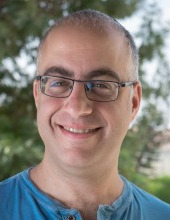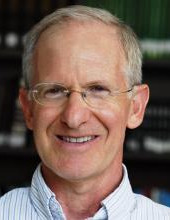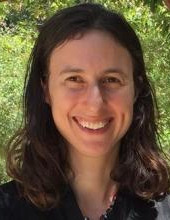Research interests: Biblical Hebrew; The languages of the Dead Sea Scrolls; Aramaic dialectology; Northwest Semitic; Semitic philology (Caspar Levias Chair in Ancient Semitic Languages).
List of Publications:
A Grammar of the Palestinian Targum Fragments from the Cairo Genizah. Harvard Semitic Studies 38. Atlanta, Georgia: Scholars Press, 1990. 322 pages.
Studies in the Syntax of Biblical Hebrew (סוגיות בתחביר המקרא). Jerusalem: Magnes Press, 1994. 202 pp.
The Jewish Neo-Aramaic Dialect of Challa. Semitic Languages and Linguistics 54. Leiden: Brill, 2010. 314 pp.
An Introduction to the Syntax of Biblical Hebrew (מבוא לתחביר לשון המקרא). Biblical Encyclopaedia Library 36. Jerusalem: Bialik Institute, 2019. 286 pp. + XXI (in Hebrew).
“The Origin of the Ketib/Qere in the Aramaic Portions of Ezra and Daniel,” Vetus Testamentum 29 (1989) 1-12.
“The Orthography of the Relative pronoun שה- in the Second Temple and Mishnaic Periods,” Scripta Classica Israelica 15 [1996] 240-250.
“The Linguistic Study of the Damascus Document: A Historical Perspective,” in Proceedings of the International Symposium, February 1998, on the Damascus Document: A Centennial of Discovery, 53-67. Studies on the Texts of the Desert of Judah 34. Ed. J.M. Baumgarten, E.G. Chazon & A. Pinnick. Leiden: Brill, 2000.
“The Syntax of the Biblical Documents from the Judean Desert as Reflected in a Comparison of Multiple Copies of Biblical Texts,” in Diggers at the Well: Proceedings of a Third International Symposium on the Hebrew of the Dead Sea Scrolls and Ben Sira, 94-109. Studies on the Texts of the Desert of Judah 36. Ed. T. Muraoka & J. F. Elwolde. Leiden, 2000.
“The Lengthened Imperative קָטְלָה in Biblical Hebrew,” Hebrew Studies 42 (2001) 243-255.
“The Movement from Qal to Piˤˤel in Hebrew and the Disappearance of the Qal Internal Passive,” Hebrew Studies 42 (2001) 243-255.
“Why Doesn’t Melex Appear as Ma:lex in Pause in Tiberian Hebrew?” Lěšonénu 64 (2002) 207-219.
“Qumran Aramaic,” Maarav 9 (2002) 19-31.
“Infinitival Forms in Aramaic,” Historical Linguistics 2005: Selected Papers from the 17th International Conference on Historical Linguistics, Madison, Wisconsin, 31 July – 5 August 2005, 239-256. Amsterdam Studies in the Theory and History of Linguistic Sciences: Series IV – Current Issues in Linguistic Theory 284. Ed. J.C. Salmons & S. Dubenion-Smith.Amsterdam: John Benjamins, 2007.
“Suppletive Noun Paradigms in Tiberian Hebrew,” Lěšonénu 70 (2008) 39-54.
“Vowel Dissimilation in Plural Pronouns in Biblical Hebrew,” Orientalia 78 (2010) 326-335.
“Which Semitic Language Did Jesus and Other Contemporary Jews Speak?,” The Catholic Biblical Quarterly 74 (2012) 263-280.
“Two Biblical Hebrew Sounds Laws in the Light of Modern Spoken Semitic,” 95-100, in Nicht nur mit Engelszungen: Beiträge zur semitischen Dialektologie. Festschrift für Werner Arnold zum 60. Geburtstag. Ed. R. Kuty, U. Seeger & S. Talay. Wiesbaden: Harrassowitz, 2013.
“The Origin of the Periphrastic Preterite kəm/qam-qāṭəlle in North-Eastern Neo-Aramaic,” 172-186, in Neo-Aramaic and its Linguistic Context. Ed. G. Khan & L. Napiorkowska. Gorgias Neo-Aramaic Studies 14. Piscataway, NJ: Gorgias Press, 2015.
“Judeo-Aramaic,” 64-177, in Handbook of Jewish Languages. Ed. L. Kahn & A.D. Rubin. Leiden: Brill, 2016.
Ed. with W.R. Garr, A Handbook of Biblical Hebrew. 2 vols. Winona Lake, Indiana: Eisenbrauns, 2016. 363 pp. + XVII .
“Jewish Palestinian Aramaic in Judean Desert Documents from the First Jewish Revolt to the Bar Kosiba Revolt,” 171-175, in Eretz-Israel: Archaeological, Historical and Geographical Studies 32 (Joseph Naveh Volume). Ed. J. Aviram et al. Jerusalem: Israel Exploration Society & Institute of Archaeology, Hebrew University of Jerusalem, 2016.
with S. Aḥituv and W.R. Garr, “Epigraphic Hebrew,” I:55-68, II:36-42, in A Handbook of Biblical Hebrew. 2 vols. Ed. W.R. Garr & S.E. Fassberg. Winona Lake, Indiana: Eisenbrauns, 2016.
“Two Maskilic Explanations of the Difference between the Causative Piʽel and the Hiphʽil in Biblical Hebrew,” 263-280, in Le-maʽan Ziony: Essays in Honor of Ziony Zevit. Ed. F. E. Greenspahn & G.A. Rendsburg. Eugene, Oregon: Wipf and Stock, 2017.
“Perfect Third Masculine Singular בעוand Related Forms in Samaritan Aramaic,” Language Studies (מחקרים בלשון) 17-18 (2017) 447-454 (in Hebrew).
“Rabbinic Literature: Lexicology and Lexicography,” 2:665-679 in The Classic Rabbinic Literature of Eretz Israel: Introductions and Studies. 2 vols. Ed. M. Kahana et al. Jerusalem: Yad Ben-Zvi, 2018 (in Hebrew).
“The Ethical Dative in Aramaic,” Aramaic Studies 15 (2018) 101-116.
“Gutturals and Gemination in Samaritan Hebrew,” 30-43 in The Reconfiguration of Hebrew in the Hellenistic Period: Proceedings of the Seventh International Symposium on the Hebrew of the Dead Sea Scrolls and Ben Sira at Strasbourg University, June 2014. Ed. J. Joosten et al.. Studies on the Texts of the Desert of Judah 124. Leiden: Brill, 2018.
“A Note on the Ellipsis of the Preposition Bet Before the Nouns בית and פתח,” Studia Biblica Slovaca 10 (2018) 159-163.
“The Noun אַולָא / אַוָל in Aramaic,” Lešonenu 81 (2019) 246-256 (in Hebrew).
“Is There an Enclitic mem in Biblical Hebrew?,” 87-104 in Studies in Biblical Hebrew. Ed. M. Rhyzik. Studies in Language 25. Jerusalem: Academy of Hebrew Language, 2019 (in Hebrew).
“Hebrew and Aramaic: Mutual Influence in Palestine,” Orientalia 89 (2020) 5-21.
“The Grammar of Baal’s Epithets,” 91-100 in Mighty Baal: Essays in Honor of Mark Smith. Ed. S. C. Russell and E. J. Hamori. Leiden: Brill, 2020.
“Should the Text Be Emended, Was It Already Emended, or Is There a Reflexive Piel?,” 89-96 in A Necessary Task: Essays on Textual Criticism of the Old Testament in Memory of Stephen Pisano. Ed. D. Candido and L. P. da Silva Pinto. Analecta Biblica 14. Rome 2020.
with Samuel E. Fox, “The Verb yhb in Aramaic,” Aramaic Studies 18 (2020) 268-278.
“On The Afel Stem in Western Neo-Aramaic,” 287-299 in Studies in the Grammar and Lexicon of Neo-Aramaic. Ed. G. Khan and P. M. Noorlander. Cambridge Semitic Languages and Cultures 5. Cambridge, 2021.
“Jewish Palestinian Aramaic: Chronology, Geography, and Typology,” Aramaic Studies 19 (2021) 1-20.
“III-y Imperatives in Ancient Hebrew,” 57-74 in New Perspectives in Biblical and Rabbinic Hebrew. Ed. A.D. Hornkohl and G. Khan. Cambridge Semitic Languages and Cultures 7. Cambridge, 2021.







